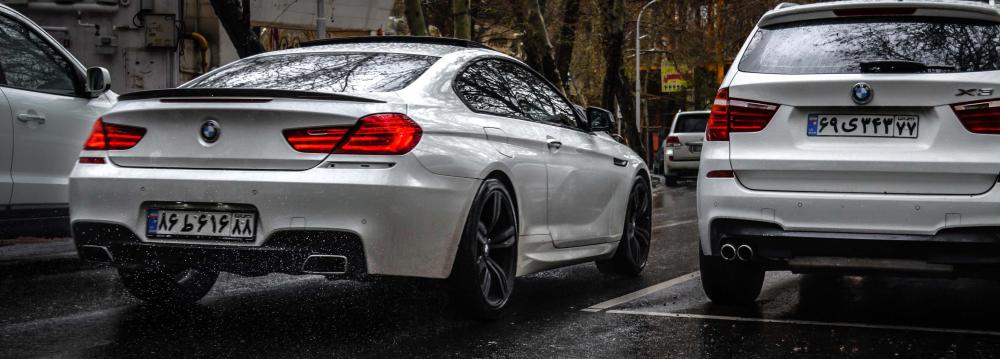All luxury car owners are obliged to pay tax by the end of the current fiscal year’s 11th month (Feb. 19), the Iranian National Tax Administration announced.
People who themselves or their dependents under 18 years own a car worth over 10 billion rials should pay this tax while those with cars worth 10 billion rials or less are exempted, Ali Rostampour, an official with INTA, was also quoted as saying by the news portal of Car.ir.
“Luxury car owners must pay tax on their cars until Feb. 19, or should file their objection before this date,” he added.
According to the official, it is estimated that there are more than 18,000 luxury cars in the country based on the VAT law’s pricing criteria of Article 42 who are subjected to a price correction as per the rate controlled by the Central Bank of Iran.
Rostampour noted that a total of 106,000 car owners have been informed that they are subjected to the car tax via text message (SMS).
He explained that cars worth 10-15 billion rials should pay 1% tax, those valued at 15-30 billion rials 2%, cars worth 30-45 billion rials 3% and cars worth over 4.5 billion rials must pay 4% luxury car taxes.
The criterion of luxury car taxes for imported cars is the value ascertained by the Islamic Republic of Iran Customs Administration, which is also based on the reference exchange rate of customs duty, i.e., 42,000 rials per USD.
Currently, the latest imported cars belong to 2017 or earlier, so the basis for calculating the value of the car is IRICA’s import duty, while that of domestic cars, the factory price is considered the base price.
Rostampour stated that his provision was also in the budget law of the fiscal 2020-21, but it was not implemented then and will be implemented for the first time this year.
Car value information is available through the news portal of INTA (https://www.intamedia.ir), where anyone can enter the system with a national ID and mobile number and where their cars and their values have been registered in that system. It also declares the amount of tax they must pay.
Car Imports to Resume in Fiscal 2022-21
As of the next fiscal year (starting March 21), car imports will resume in limited number.
The Majlis Budget Integration Commission has approved the import of 50,000 passenger cars and 10,000 heavy mining and road construction machinery in the next fiscal year.
According to Jan. 19 approvals, the commission has agreed to allow these imports at a tariff approved by the Cabinet. Proceeds from this issue will be spent on financing the rail network and establishing new railroads, including for regular and high-speed urban trains, and for completing semi-finished rail and road construction projects of deprived areas and for repairing accident-prone hotspots, ISNA reported.
These undertakings will be ceded to the private sector, including natural and legal persons.
As per the ratification, in the next fiscal year, trucks, the import of urban and suburban buses, refrigerated trailers, wagons and refrigerated vans will also be allowed at the tariff rate approved by the Council of Ministers.
Revenues amounting to 600 trillion rials ($2.17 billion) are expected from this source.
“In the commission’s meeting, the car import proposal received six votes in favor, which allowed the government to import a limited number of cars with non-export foreign exchange revenues [exchanged at the Nima rate],” Mohammad Reza Mir-Tajeddini, a member of Majlis Budget Integration Commission, was also quoted as saying by Car.ir.
Nima is a secondary market developed by the Central Bank of Iran to be used as a venue where companies sell their export earnings at rates lower than the open market. The currencies sold on Nima will help fund imports.
The most important dispute between the parliament and the Ministry of Industries, Mining and Trade concerns the import of foreign cars.
While lawmakers consider the issue of imports as the only appropriate solution in the short term to end the domestic car market’s monopoly and create a balance in foreign car prices, the Ministry of Industries, Mining and Trade does not endorse the issue by citing the scarce forex reserves.
The parliament passed a motion on Sept. 14 in favor of lifting car imports conditionally.
According to this decision, imports of gasoline, hybrid, electric and compressed natural gas-powered vehicles of specified emission and safety standards are allowed hereafter, with the stipulation that domestically-made vehicles or related parts are exported in return so that no foreign currency is spent on the purchases.
Also, the lawmakers decided that the import of secondhand cars are permitted, as long as they are not older than three years (as of the date of production).


